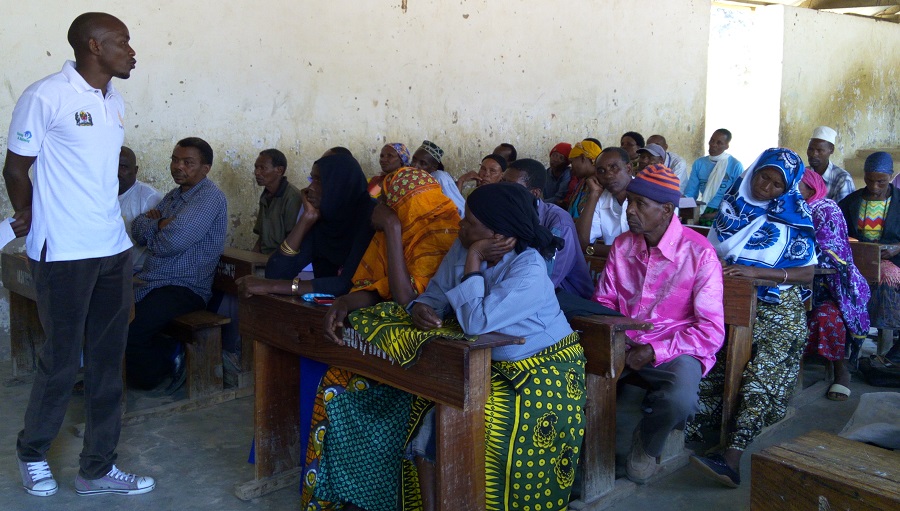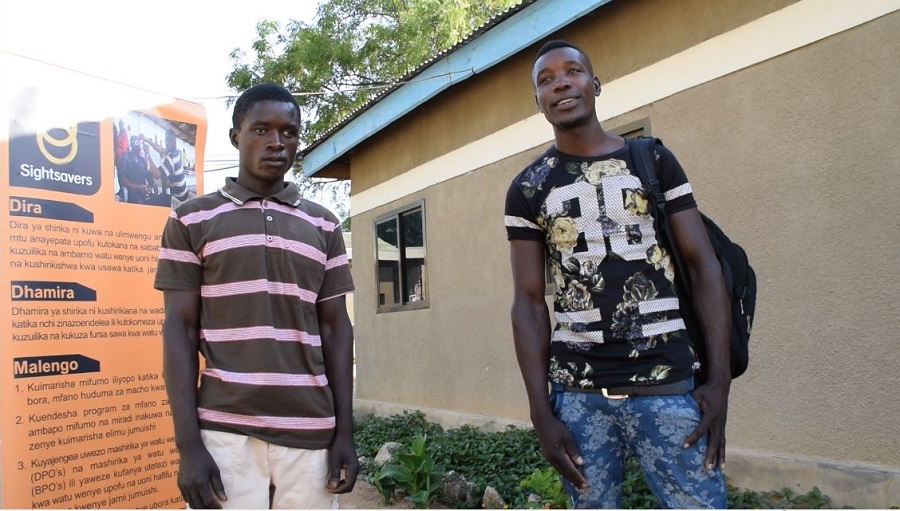Join a powerful, unprecedented alliance for better eye health for all.
Join IAPB-
Choose an alternate language here

Over the last 30 months, through the SiB project, Sightsavers has collaborated with all seven districts councils in Singida to improve cataract surgery uptake by employing impactful strategic interventions at primary, secondary and tertiary levels. Through the SiB project 25 outreaches for cataract operations has been done (August 2016 to September 2018). As the result, the surgical rate has increased from 531 surgeries (2015 Project baseline report) to 2,330 surgeries (January to September 2018 project data). Uptake of cataract surgery was very low – mainly attributed to distance to district hospitals, cultural norms, fear of surgical outcome, and lack of community awareness and shortage of ophthalmic equipment.
Achievement at primary level
The SiB project continued to utilise existing Ministry of Health, Community Development Gender, Elderly and Children structures, Health Centres (HCs), Dispensaries and Education Institutions. The project trained 289 Community Health Workers (CHWs) in Primary Eye Care (PEC) aiming at case identification and referrals to the nearest rural health facilities.
The project worked together with Singida region and trained about 265 community leaders on how to influence change towards community perceptions on importance of surgery and addressing cultural norms that prevent community participation in eye health care services.
The region have a total of seven (7) district whereby 1,051 Village Health Workers (VHWs) two from each village were trained on PEC and effective community sensitization, as to increase cataract surgery uptake. Cataract patients have also remained as good ambassadors and are playing a key role in encouraging other cataract patients around the importance of surgery and breaking taboos, traditional beliefs, and fears spirits about cataract surgeries.
Achievement at secondary level
The project has built human resource capacity by training thirteen (13) Ophthalmic Assistants. This is in line with the Ministry of Health’s transformation agenda of taking quality health services closer to the people while improving referral system across all seven districts.
Seven district eye staffs were provided with basic eye equipment necessary for diagnosis of different eye conditions. Furthermore, the project in collaboration with the Regional Health Management Team and District Health Management Teams established a comprehensive cataract mobilization and surgical eye camp schedule. The cataract surgical schedule details all cataract activities within the district and was integrated into the Council’s Comprehensive Health Plans (CCHPs) and Comprehensive Hospitals Operational Plans (CHOP) to ensure that they are part of government plans and monitored through the government systems.
A key intervention was strengthening patient follow up two weeks after surgery and ensuring that Ophthalmic Assistants and Optometrists conduct these visits to ensure positive cataract outcomes for patients.
A Case of Manyoni district
Manyoni district hospital has been conducting mobile surgical eye camps throughout with support from, Singida Regional referral hospital. Through these key strategic interventions at primary, secondary and tertiary levels, 339 people received cataract surgery (April to November 2018).
Abdala, is among patients who received cataract surgery, he is 30 years old but he was blind for the previous 11 years. During the interview with Abdala he said,’’ I have been total blind since 2007’’ he continued,’’ My parents tried to find solution since 2007 but we ended up by attending treatment from traditional healer;’’ The traditional healer provided me with traditional medicines,’’ he told me that my eye condition have been coursed by witchcrafts. He continued ‘’until early dates of August; we met with our village leader who advised me to visit the district hospital for eye check-up. Our Village health worker also met with me in November and she told me about the eye camp in Manyoni district hospital.
In November 2018, Abdala attended the surgical camp at Manyoni district hospital; he screened his eyes and was found with cataract in both eyes, (right eye – was able to see hand movement while left eye able to see the perception of light).
He received cataract surgery that resulted to improve his vision to (right eye 6/24 once bandage removed) after three days another eye was operated and the vision improved to (6/24 left eye). The Surgeon said’’ Abdal will continue to improve his vision after using medicines because, he has stayed for a very long period with cataract, thus the day one outcome will continue to improve.

Edwin Maleko
Project Coordinator – Sightsavers
[email protected]